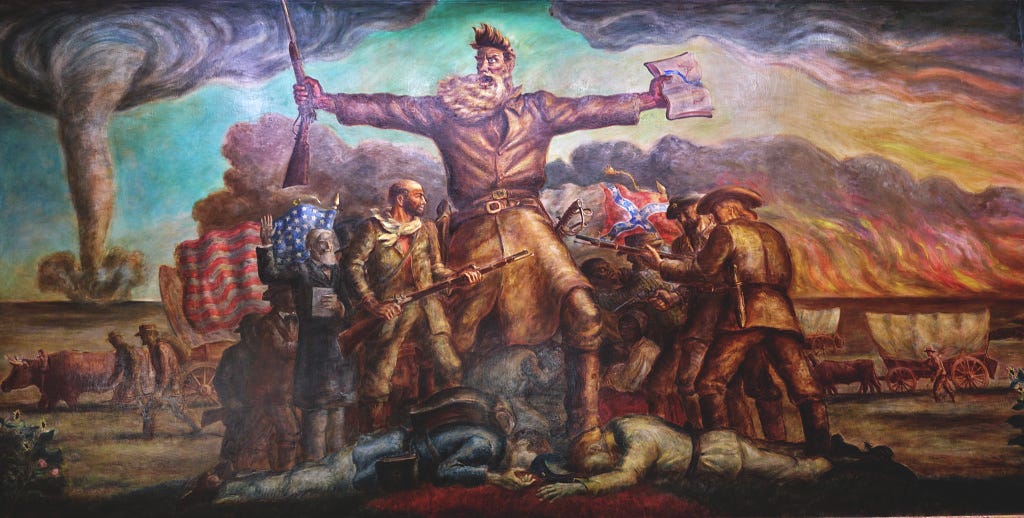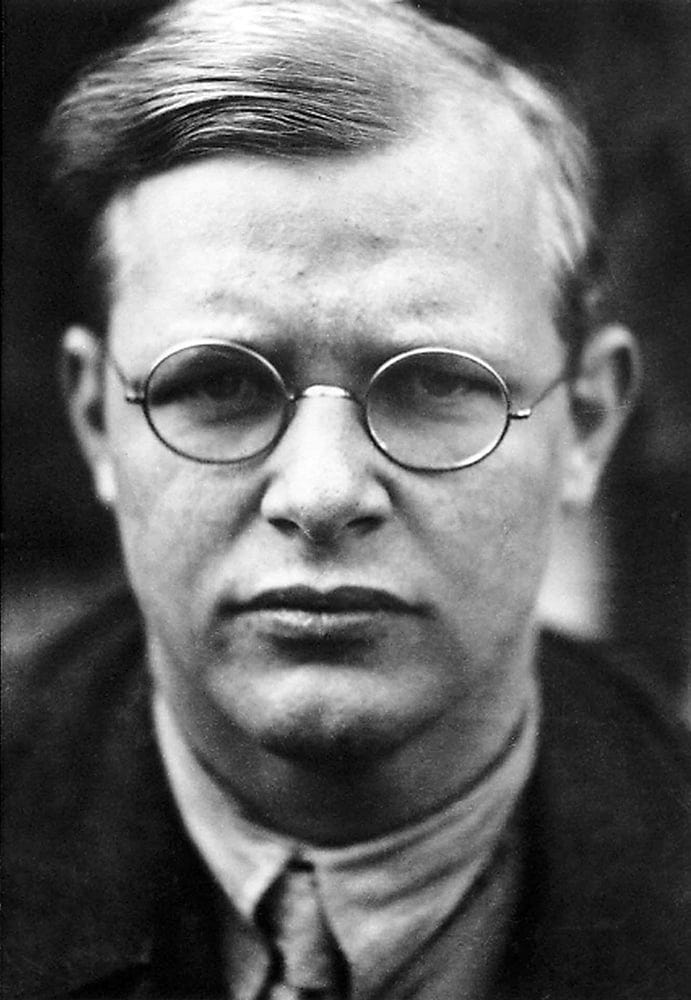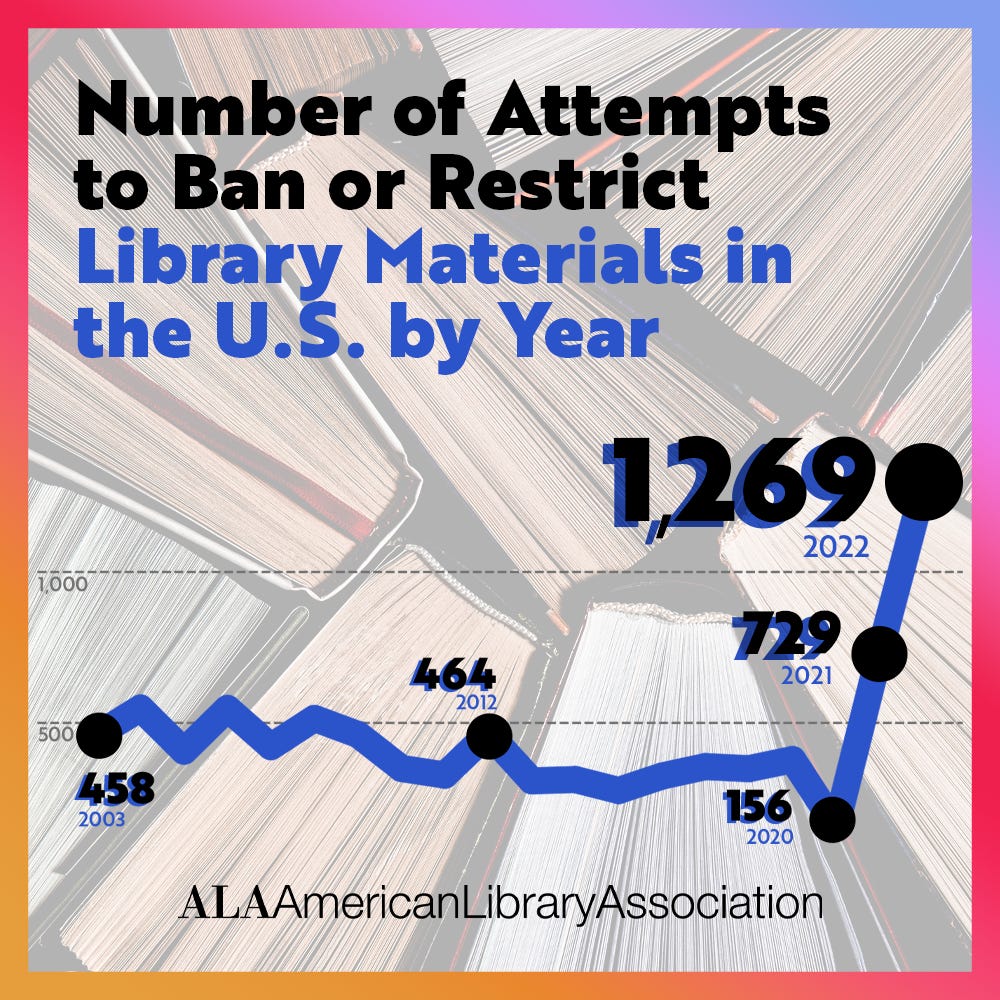
Everything we perceive is, by nature, limited to the experiences we have over the duration of our lifetime. But our lives are nasty, brutish, and short, while time stretches interminably on in every direction.
We live in time, as a response to what came before, and as a prompt for what lies ahead. Our knowledge, convictions, and actions are not wholly our own, but rather a synthesis of our individual choices, steeped in all our cultural and social inputs. In turn, that synthesis—us—will affect all those who come after.
And no one gets out entirely clean. We all lead lives of imperfection, capable of good and bad and often lots of both in a single lifetime.
My grandfather, who just turned 91, has been alive for nearly 40% of US history. Although he’s not technically older than sliced bread (Otto Rohwedder sold the first automatic slicer in 1928), he’s seen the world go to war, a man walk on the moon, and in his twilight, a global pandemic unlike any other in the history of our species.
In that time, Grandpa witnessed a lot of evil and a lot of progress. I love the old fella, and I think he did a pretty good job living a moral life. That wasn’t always easy through periods of history when many people didn’t, at least by any reasonable modern standard.
It’s easy to look at the faces in our history books, like those of the jeering adults shouting at children outside a Little Rock school, or Hutus brandishing machetes during the height of the Rwandan Genocide, and think “that could never be me.”
Truly, I hope it couldn’t be you. History is replete with examples, and arguably built on the actions, of brave individuals who bucked social expectations and commonly-held beliefs to fight for a better world. Many paid the ultimate price for their courage and resistance.

But for me, personally, I find it safer to assume that if I were raised like the people whose actions we now despise, in their context, with their hopes and fears and cultural inputs, I’d probably be just like them.1
It makes me grateful for the many wonderful people who have shown me better ways to live, especially in times when I’ve stumbled and needed to be picked back up. And it’s a scary thing, to ponder that there’s no evil you might not be capable of in another set of circumstances.
This doesn’t excuse the primacy of conscience. We still must strive to do what’s right no matter the pressures on us. But I do think it’s a rallying cry for doing everything we can to create healthy, tolerant, and loving communities. I mean, by this, the sorts of communities where injustice is challenged and corrected, instead of being allowed to flourish in disguise.
After all, everybody is the hero of their own story. Vanishing few think of themselves as the villain. But history reveals countless examples of would-be heroes, convinced in their time of the righteousness of their actions, who appear now as monsters to us.
I propose that a tremendously useful thought exercise is to think of your life in terms of history and how it will judge you. I don’t mean history as the grandiose playing field of statesmen and generals and queens, but the everyday history of how our friends, neighbors, family, and—most importantly—descendants, will see us in time.
Quick Ways to Know You’re Doing It Wrong
As I was thinking about this list it occurred to me that one could pigeonhole any number of bad groups into the right side of some of the rules, but to quote C.S. Lewis that objection has “every available quality except that of being useful.” These are general principles for looking at yourself and others through history’s eyes, not commandments set in stone, and I suspect that someone who stays on the other side of all of these will probably turn out okay in the final review.
Without further ado, here are some ways to know you should make a change.
You are burning books. This is my favorite way to know you’re on the wrong side of history. Unfortunately, I don’t think we left this behavior behind in Bebelplatz Square. Today we just call them “book bans” or “library challenges.” Censoring what information other people have access to, just because you disagree with the viewpoint of that information, is plain wrong. It’s also different from media responsibility, and one can conceive of valid conversations around what material is appropriate, in what context, and at what ages.2 It just so happens that the people doing the challenging are almost never trying to have that valid conversation.

You condemn a group as a whole. This tends to hold true across ethnicities, religions, and politics. Or, you define your group by the othering and victimizing it does unto others. This is especially true if you find yourself laying the blame for society’s ills at the feet of the group you’re doing the othering to. We can all think of examples of bad groups, and I’m not saying you should view your cousin’s Klan membership as some quirky hobby. Wrong is wrong, but I think you know the sort of othering I’m talking about and the groups that do it.
You support the instigation of violence.3 Look, I’m not clutching my pearls here. I accept violence as a necessity in response to broken people perpetrating some initial violence. The world is a better place because Lee lost at Gettysburg. But I’m hard pressed to think of times when violence is initiated, without provocation, by the good guys. I’ll also note that even if history concludes your warring party was the lesser of two evils, it doesn’t absolve you of your responsibility to protect noncombatants from violence, or your responsibility for just stewardship of enemies you defeat.
You oppose the work of redemption. Remember how I said all of us lead lives of imperfection? Well I’m not sure if you’ve said an unkind word to your sister or if you’ve robbed a bank, but I’m sure you’ve done wrong. So have I. I’m sure wrong has been done to you. Me too. Well, I’m here to tell you that no matter the wrong done, as long as a person draws breath, there’s an opportunity for them to do better. Everyone deserves the chance to seek redemption.
That’s different from absolving someone of the consequences of their actions, although on net I’m radically more for mercy and restoration than I am for punishment. And before you declaim that this position could only be held by the privileged few, let me say that redemption shouldn’t come at the expense of seeking justice, nor does it mean victims of wrongdoing must forgive their aggressors. It does mean that you shouldn’t stand in the way of people making amends and bettering their lives, in whatever context they can. Thoreau said it best:
Alert and healthy natures remember that the sun rose clear. It is never too late to give up our prejudices.
You don’t work to leave your campsite clearer than you found it. The Boy Scouts got a lot of things right, and this old camping adage works across every domain of life I’ve encountered. You can’t solve every problem, and you can’t eliminate every externality, but you can look at the world and your impact on it in terms of what you’re doing to fix its brokenness and leave something better behind. Most importantly, you should expand your area of responsibility beyond your immediate impact. Just because the last person to come through the campsite left a bunch of garbage, and it has nothing to do with you, doesn’t mean you don’t have a responsibility to pick it up.
Finally, you should accept that you’ll be on the wrong side of history. At least a little. I actually take great comfort in this. If our perspectives on right and wrong don’t evolve such that my views seem somewhat outdated to my grandchildren and great-grandchildren, then we’ve lost the progress that makes our species great. That’s a political statement, but I’m not trying to make a claim on left–right politics. Progress rarely looks exactly like we think it will, and not every promise will or should be realized, but I tend to agree with Dr. King, “the arc of the moral universe is long, but it bends toward justice.” Surely something I’m doing today, even something that most of us are doing today, will strike those who come after us as wildly misguided. That’s okay, their dissent and disapproval means we’ve done the most every generation can aspire to: raised our betters.
Are You With Me?
I want to offer one last thought—and it’s something I find particular solace in. For as much as expectations and norms change, a shocking amount of what was good two thousand or even five thousand years ago is still good now, and I think will be good for as long as humans are around. Love for your neighbor, kindness to the stranger, and mercy for the vanquished have been celebrated across time and peoples and mythologies and religions. We might fall short in the practice, but we all share approximately similar ideals of what to strive towards.
Did you agree? Is my head up my own ass? Feel free to let me know, either way, directly or in the comments. Otherwise, I’ll see you on Friday for the Weekend Read.
I’ve been thinking / worrying about this ever since I was introduced to Hannah Arendt’s Eichmann in Jerusalem in high school. Controversial though it may be, I think it’s good to understand her conception of the banality of evil.
For example, there have been some horrible books written, espousing all manner of vileness. I’m not even going to link to any here. But scholars and amateurs alike should retain access to material, especially if it can be sourced responsibly, in order to study and counter it. I’m near-universally against the erasure of information, even evil information, because evil though it might be, it’s still a record and reflection of who we are, where we’ve been, and—hopefully—how far we’ve come.
Instigation is a tricky word, and I’ll even allow that reasonable, well-meaning people can disagree here. Again, I’d just ask you to consider things through the eyes of history. No one argues that Haitian revolutionaries were wrong to strike first in 1791—because they were resisting the violence of slavery which had already been inflicted on them.



This is heavier than my normal stuff, I promise I will get back to martini focused content soon.
I could have lived my whole life without the perspective that my 91 year old grandma has lived for 40% of US history. Thanks for that.